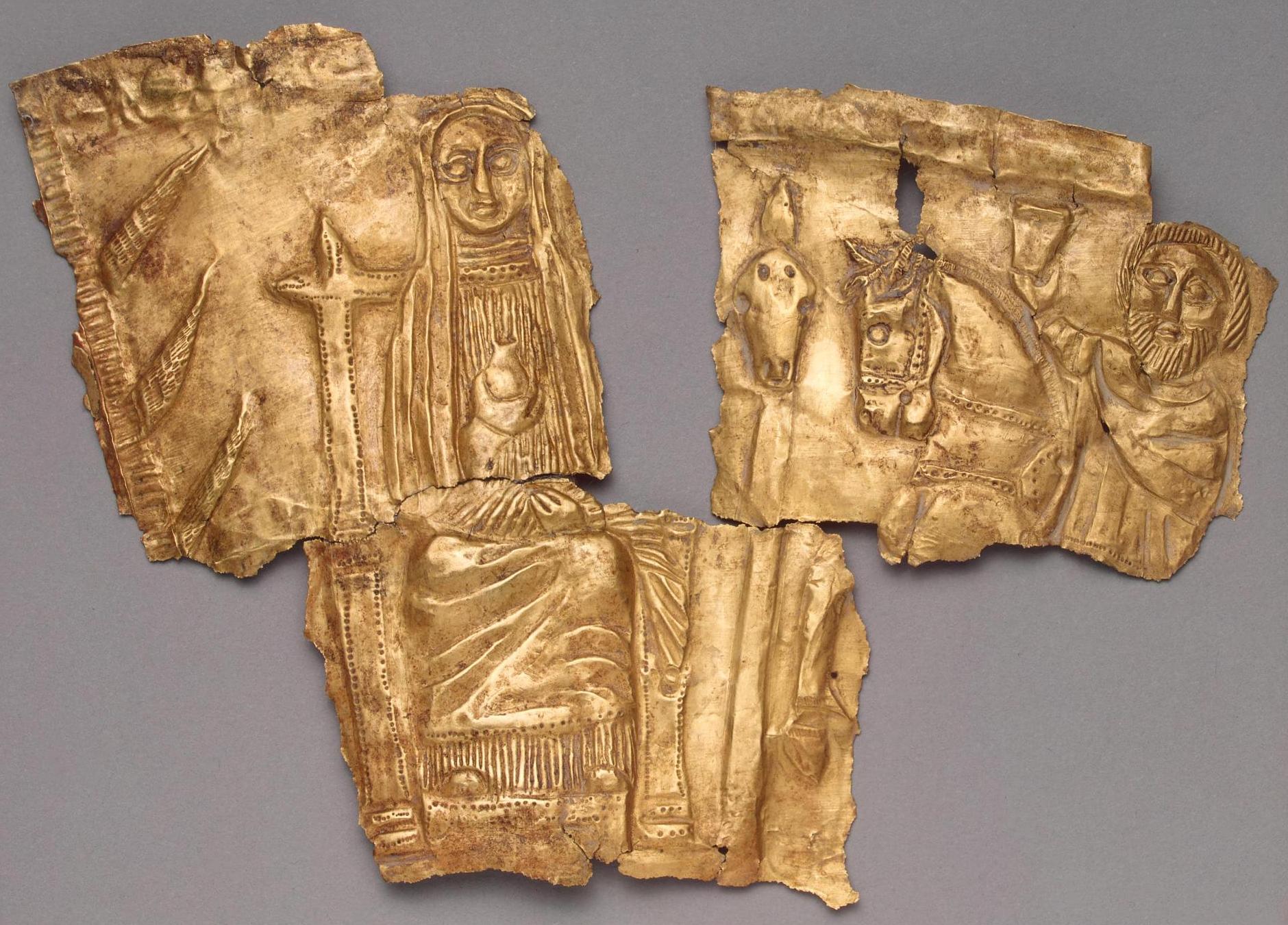
Create an Amazon Business Account
Fragment of a Scythian Rhyton with a Ritual Scene
Merdzhana, Transkuban, Late 4th - early 3rd centuries BC.
State Hermitage Museum, St. Petersburg, 2521-10.



The fragment of a rhyton with a ritual scene was found during the excavation of the barrow near Anapa, Russia, in 1876. Among the artefacts from the early Hellenistic period dating back to the turn of the 4th and the 3rd centuries BC, of utmost interest is a gold plaque with a roughly embossed scene: a bearded rider holding a rhyton approaches an enthroned woman who has a round-bottomed vessel in her hand. Scythians from the Northern Pontus area and Maeotians of the Trans-Kuban region used vessels in the form of a rhyton (horn) and rounded goblets for ritual drinks as part of religious worship. Between the figures is an impaled horse head, whilst near the throne there is a tree (the Sacred Tree of Life?). It is surmised that the scene shows either a mystical rite of the wedding of the Great Goddess and some local god or chief, or the introduction of a tsar to the power of the Supreme Goddess of Life and Fruitful Forces of Nature. There is a version that the depicted scene is one of horse sacrifice, which was performed in order to gain immortality. Both characters are clad in Greek clothing. It cannot be ruled out that the general composition as well as certain details were inspired by some artefact from the time of Classical Antiquity, though this work was executed by a local barbarian craftsman.
Title: Fragment of a Rhyton with a Ritual Scene
Epoch. Period: Early Iron Age
Date: Scythian Culture. Late 4th - early 3rd centuries BC
Place of finding: Transkuban, the Village of Merdzhana near Anapa
Archaeological site: Barrow near the village of Merdzhana
Material: gold
Technique: repousse
Dimensions: 7.2 cm
Inventory Number: 2521-10
State Hermitage Museum, St. Petersburg, 2521-10